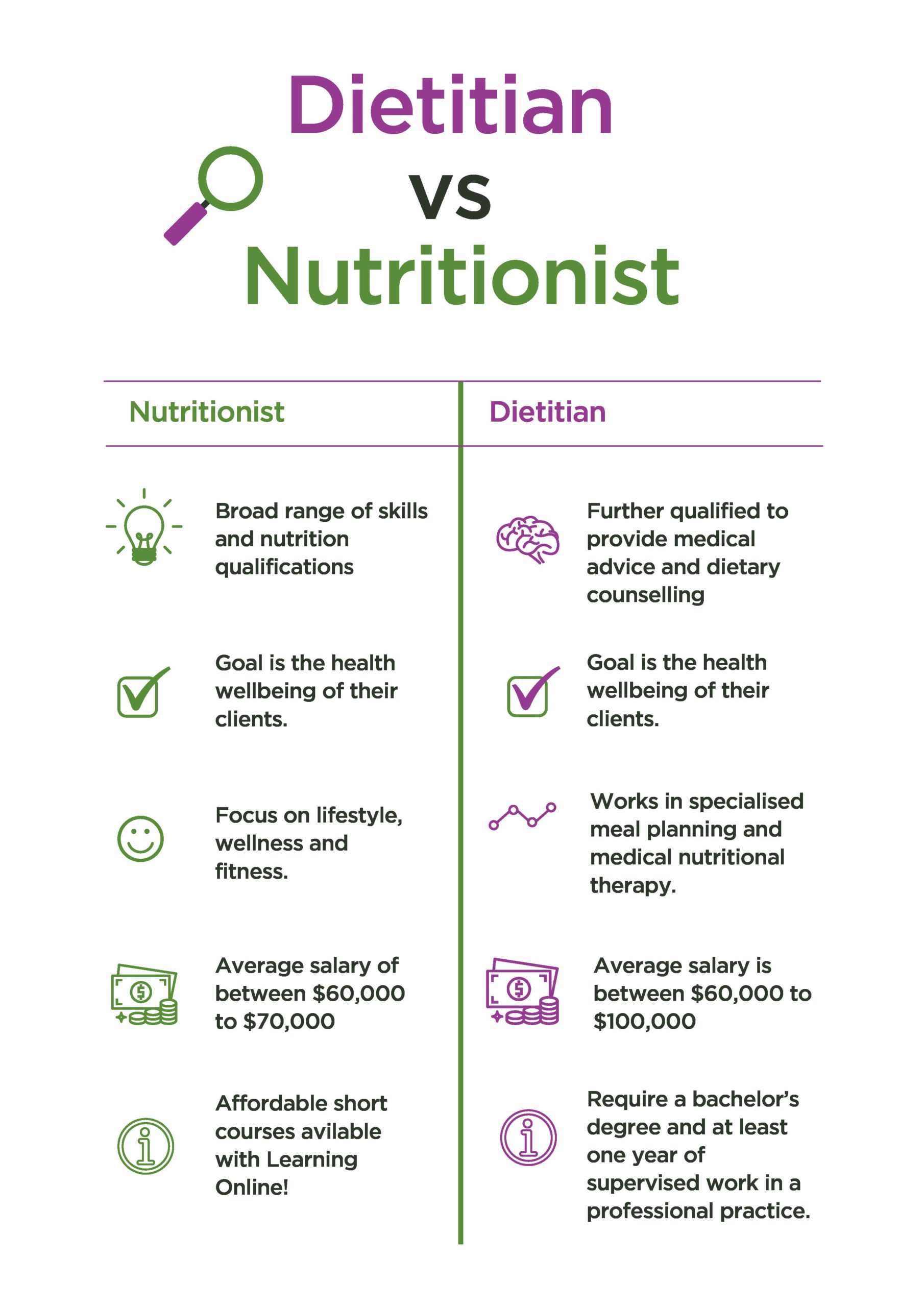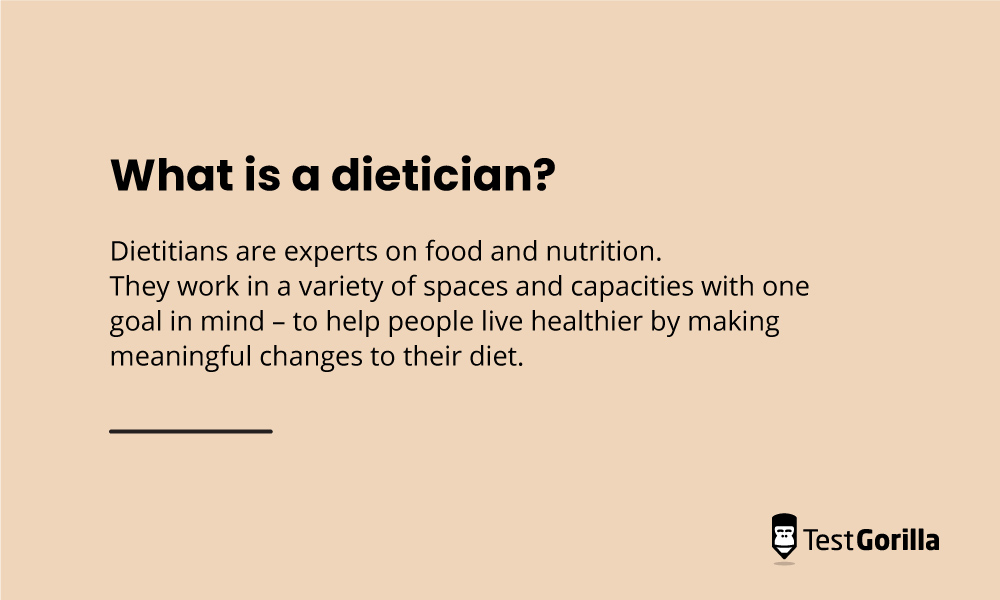All Categories
Featured
Table of Contents
- – What Is The Average Cost Of Registered Dietiti...
- – Which Is The Best Functional Dietitian Company?
- – Who Has The Best Nutrition And Lifestyle Coac...
- – How Much Does It Cost To Hire A Eating Disord...
- – How Much Does It Cost To Hire A Pregnancy Di...
- – How Much Should I Pay For Postpartum Dietiti...
The sorts of Nutritional experts are: and. The former are those individuals that utilize the clinical method to study nutrients, both as individual compounds and as they engage in food and nutrition while the last are professionals that help in detecting the nutritional problems of areas and in finding remedies to those issues.
: They collaborate with health cares and international health and wellness organizations.: They are in charge of large food preparation and service.: They are specialists in nourishment and aging. They are Board licensed in Gerontological Nourishment with the American Dietetic Association.: They are primarily included with dietary related research in the scientific facet of nutrition in condition states, public facet on primary, secondary and sometimes tertiary wellness avoidance and foodservice element in problems involving the food gotten ready for people.
What Is The Average Cost Of Registered Dietitian Services?
, and newspapers-- either as an expert visitor viewpoint, normal reporter or guest, or for source, restaurant, or recipe advancement and critique.: These work under private method. As described above, all dietitians are nutritionists however not all nutritional experts have the credentials and credentials to be called dietitians.
This means precisely the very same point as Registered Dietitian (RD), a term that has been in usage for a lengthy time. While certification to become an RD or RDN is governed by the Academy of Nourishment and Dietetics a nationwide company licensure is managed by individual states.

In order to offer medical nourishment therapy and qualify as suppliers for insurer, a dietitian should be licensed by the state. According to the Bureau of Labor Stats, the need for dietitians and nutritionists is anticipated to boost by 20% between 2010 and 2020 this is a much faster growth price than the average for all line of work.
Which Is The Best Functional Dietitian Company?
There are substantial distinctions in compensation based on expertise, with Clinical Pediatric Dietitians and Dairy Nutritionists balancing around $90,000. In 2014, The Bureau of Labor Stats (BLS) located that the leading 10% of dietitians and nutritionists gain even more than $79,000, and the bottom 10% much less than $36,000 - Certified Nutrition Consultant. A mean per hour wage of $27.62 was determined for both industries, with the leading 10% earning above $38.00 per hour, and the bottom 10% earning below $17.00 per hour

There is a range of tasks available in various atmospheres for those that desire to work with the public, as well as for those that like even more research-focused employment. Many get involved in one of these areas in order to help people live much healthier lives which can be profoundly satisfying.
With existing statistics that one-third of the U.S. populace is overweight, in addition to a a great deal of elderly U.S. citizens, dietitians and nutritional experts are likely to have a more extensive role in the future. My Plan ranks dietitians and nutritionists at # 53 in their joy index of leading 300 careers with the highest possible work complete satisfaction rankings.
In enhancement to attending an accredited program, the majority of states require dietitians to be licensed or to have professional certification, or both.
Who Has The Best Nutrition And Lifestyle Coaching Service?
Your core courses may consist of: Food scientific research Chemistry Health treatment plan Clinical nourishment Biostatistics Microbiology Food solution monitoring You'll additionally require to complete a dietetic internship.

And to advance in the area, you'll likely require a master's degree. So, whether written in law or not, dietitians and nutritionists many times require a comparable education and learning. Common bachelor's levels for nutritionists include nutrition scientific research or a related discipline, such as dietetics, kinesiology, food system monitoring, or biochemistry and biology. Several of your courses could consist of: Fads in nourishment Biomedical stats Scientific nutrition Food, nutrition, and behavior Nutritional ecology Community nutrition Physiology Some level programs consist of teaching fellowships, however in others you'll need to find chances by yourself.
The number of hours you'll require might depend on needs in the state where you'll function. Whether you plan to earn a credential or not, it's a great concept to complete at the very least one internship to acquire important experience prior to seeking a full-time duty. Licensing and certification requirements for nutritional experts and dietitians differ from state to state.
How Much Does It Cost To Hire A Eating Disorder Nutritionist?
A professional certification demonstrates your knowledge and knowledge in your field. Below are the leading accreditations for dietitians and nutritionists.
The titles are basically the exact same. There's no specialist difference between them, and you're free to select which one you wish to utilize based upon personal preference. To take the qualification exam, you must: Earn a bachelor's degree that's accredited by the ACEND Full a dietetics internship After Jan. 1, 2024, you'll require to gain a master's level to get approved for the accreditation.
How Much Does It Cost To Hire A Pregnancy Dietitian?
Bureau of Labor Stats puts dietitians and nutritionists in the very same category and states they gain a mean yearly salary of $69,680. There is a variety in incomes, with the bottom 10% around $44,910 and the top 10% around $98,830, according to the BLS. Nutritional expert and dietitian duties are expected to expand 6.6% via 2032, according to the BLS.
This doesn't mean that a person career is remarkable to the other, as they both have different features and credentials that may in some cases overlap. If you wish to discover more regarding what makes these careers unique, maintain analysis. Diet professionals are specialists that assist improve the lifestyle through healthy and balanced food options.
How Much Should I Pay For Postpartum Dietitian Services?
Nutritional expert suggestions about nourishment's effect on health and wellness. The area is much less regulated than dieticians; thus, nutritional experts' degrees of competence and certifications can differ.
There are numerous differences in between dieticians and nutritionists. Here are the training and history requirements. Dieticians commonly hold a bachelor's level in dietetics, nourishment, or a related area. As their jobs advancement, many dieticians go after advanced levels, like a Master's or Doctorate, to specialise in certain areas of nourishment. Diet professionals have to undertake supervised useful training as component of their education and learning to get hands-on experience in medical setups, area nourishment programs, or food service administration.
Table of Contents
- – What Is The Average Cost Of Registered Dietiti...
- – Which Is The Best Functional Dietitian Company?
- – Who Has The Best Nutrition And Lifestyle Coac...
- – How Much Does It Cost To Hire A Eating Disord...
- – How Much Does It Cost To Hire A Pregnancy Di...
- – How Much Should I Pay For Postpartum Dietiti...
Latest Posts
Inclusive Womens Health Specialist Near Me
Client-Focused Gym Classes – Darch WA
Cost-Effective Body Conditioning
More
Latest Posts
Inclusive Womens Health Specialist Near Me
Client-Focused Gym Classes – Darch WA
Cost-Effective Body Conditioning